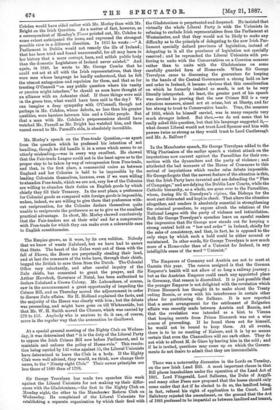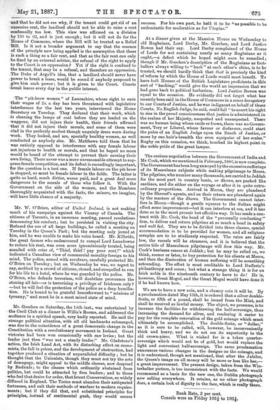There was a noteworthy discussion in the Lords on Tuesday,
on the new Irish Land Bill. A most important clause in that Bill places leaseholders under the operation of the Land Act of 1881. Lord Fitzgerald, Lord Selborne, the Duke of Argyll, and many other Peers now proposed that the lessee should only come under that Act if he elected to do so, the landlord being, in fact, refused his right of application to the Court. Lord Salisbury rejected the amendment, on the ground that the Act of 1881 professed to be impartial as between landlord and tenant,
and that be did not see why, if the tenant could get rid of an excessive rent, the landlord should not be able to raise a rent confessedly too low. This view was affirmed on a division by 130 to 62, and is just enough ; but it will not do for the House of Commons, where the Bill will be treated as a Relief BM. Is it not a broader argument to say that the essence of the principle now being applied is the assumption that there is such a thing as a fair rent, and that as the fair rent can only be fixed by an external arbiter, the refusal of the right to apply to the Court is an oppression ? Yet if the right is confined to the tenant, that may be a refusal, and therefore an oppression. The Duke of Argyll's idea, that a landlord should never have power to break a lease, would be sound if anybody proposed to give him such power ; but it is given to the Court. Courts break leases every day in the public interest.



















































 Previous page
Previous page